The Unreasonable Policing Of Black Women At The Oscars
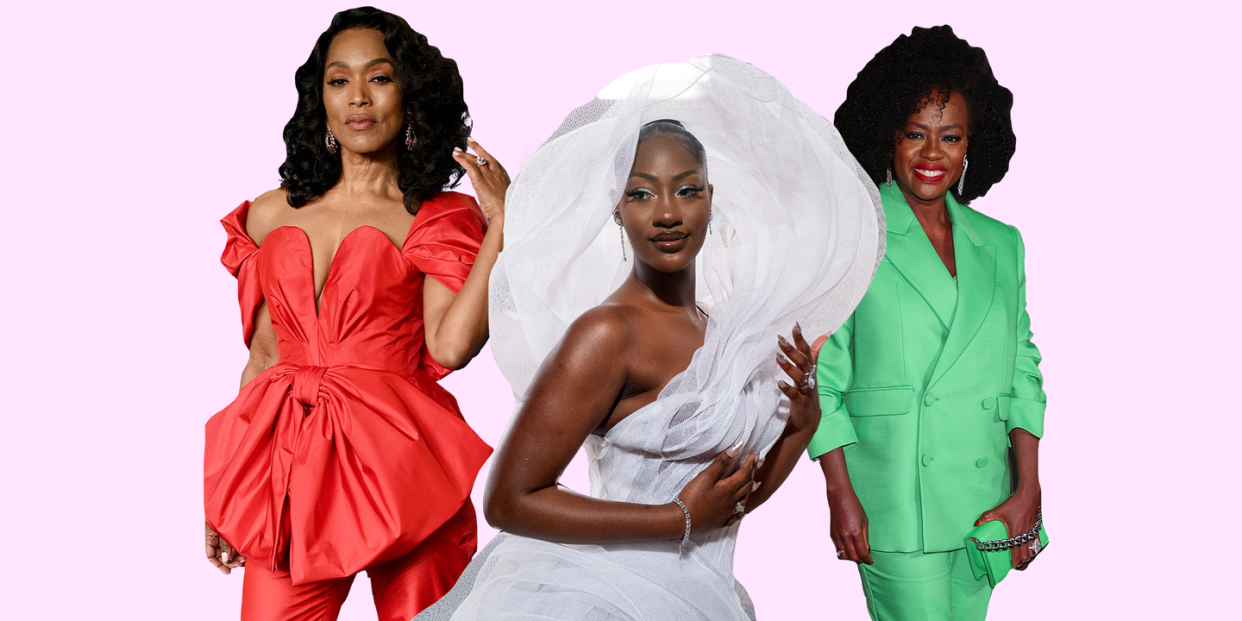
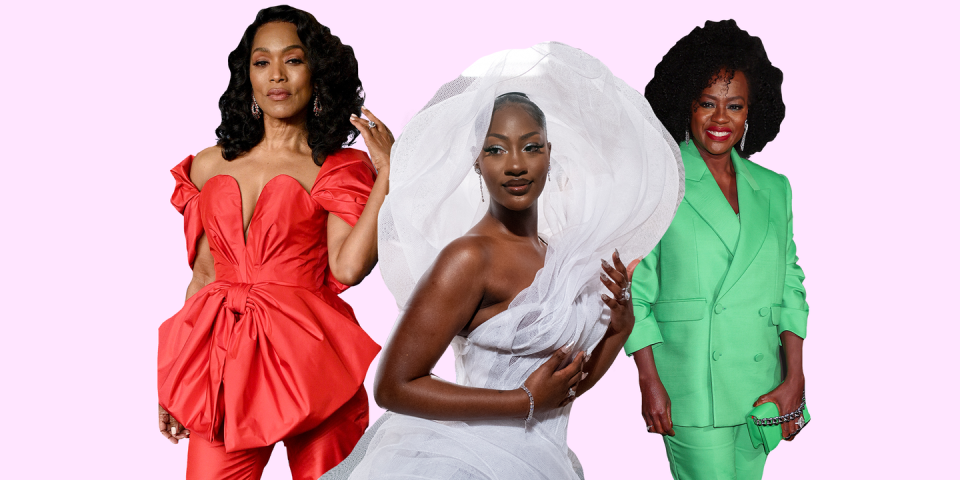
The Oscar’s has cemented itself as one of the most powerful, taste-making forces of our time. Its key moments - like 'the slap that was heard around the world' and Björk's Marjan Pejoski swan dress - are seared into collective memory, their significance spreading far beyond the boundaries of Hollywood.
Last weekend, 95 years after its first edition, the Academy Awards once again highlighted that the mistreatment of Black women is a mainstream tendency still very much alive. Despite the many incredible Black women present at the Oscars, the criticism of their behaviour was strikingly disproportionate to that experienced by their white counterparts.
An expectation to ‘perform’
Following her 2001 Best Actress win, a gushing Halle Berry told the audience that this was 'a moment so much bigger' than her, going on to dedicate the victory to 'the women that stand beside me, Jada Pinkett, Angela Bassett, Vivica Fox.' And 22 years after that speech Bassett, one of the Black actresses singled out by Berry, found herself again on the cusp of Oscars glory.
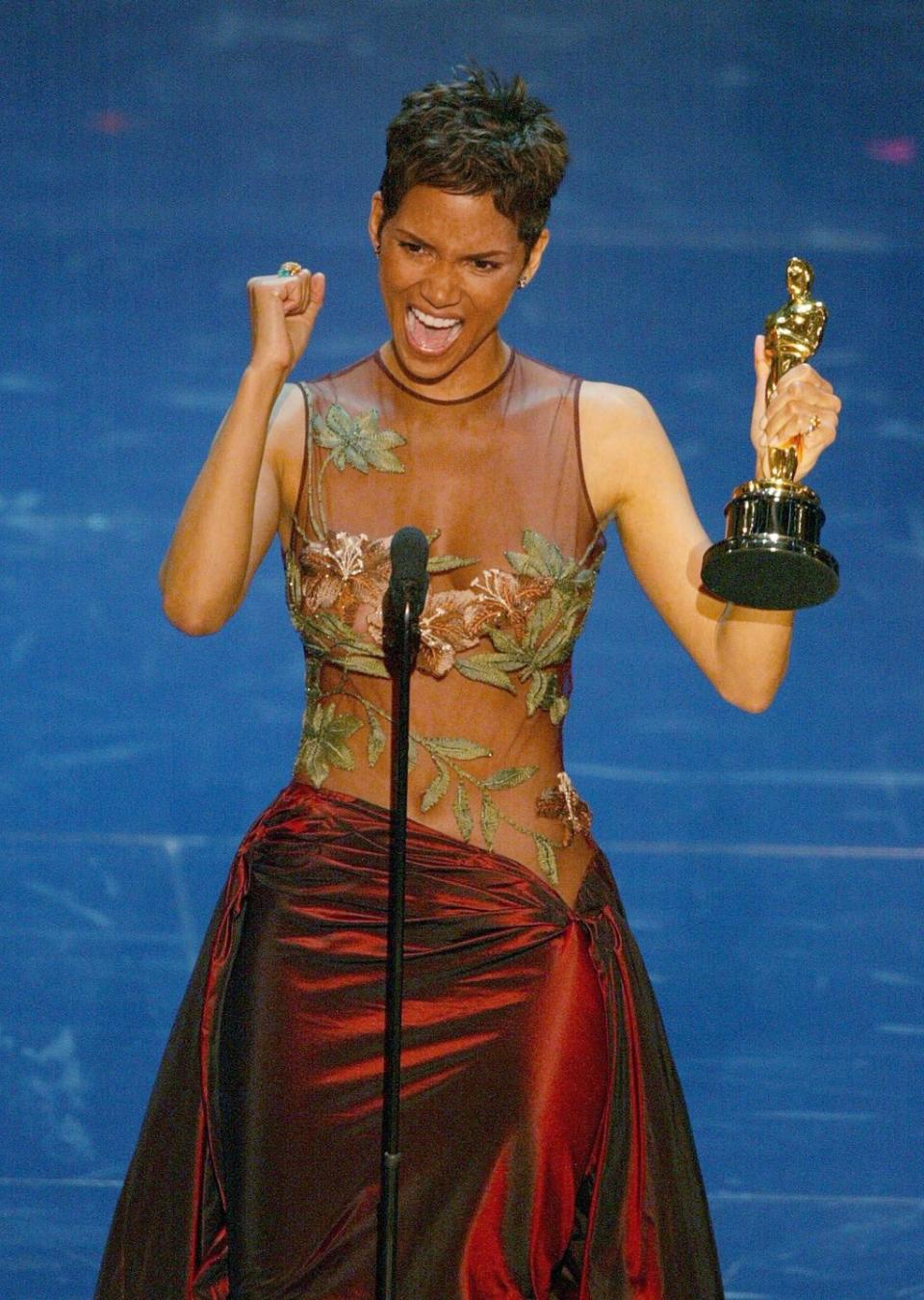
In an awards season packed with controversy, rule breaking campaigns and headline-making musical performances (courtesy of Arianna DeBose), the significance of Bassett’s nomination may have been lost on some. Few actresses have displayed her level of consistency and longevity in an industry famous for shunning older women. Berry wasn't the only one to credit her with Oscars worthy acting chops early in her career. Nearly three decades ago, in 1993, she was nominated for her performance as Tina Turner in the biopic What's Love Got To Do With It. So to be recognised in the same award category again in 2023, at 64-years-old, is testament to an incredible career.
Sadly, in amongst the celebration of her legacy, Basset was branded a ‘sore loser’ for what was perceived to be her reaction to the gong going to Jamie Lee Curtis. As is the painful tradition, the broadcast's cameras paused on the faces of all the nominees as they announced the winner, and some hungry Twitter users claim to have seen Bassett's smile slip, betraying her disappointment. She's since been vilified for not feigning happiness in the moment. And so what? To my mind, it was a justified response to the loss - a second time round - of an award she's waited a lifetime for.
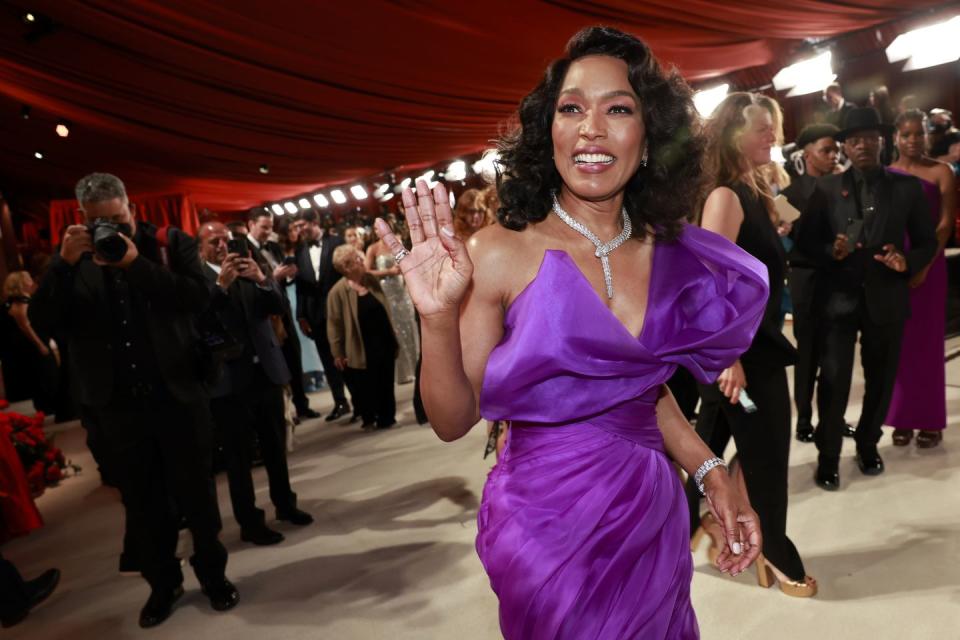
The Oscars' camera directors have captured many a so-called ‘sore loser’ over the years, some even during this year’s proceedings. Songwriter Diane Warren was filmed with a stony expression on discovering that Naatu Naatu had won in the Best Original Song category, and yet she's escaped the criticism levelled at Bassett. Samuel L Jackson visibly mouthed the word ‘shit’ when his own failure to win Best Supporting Actor was announced in 1995 and Sally Kirkland even rolled her eyes in 1988 after losing the Best Actress award to Cher.
The criticism of Bassett’s reaction is not a question of ‘good sportsmanship’ or even her acting ability, it’s hypocrisy. Where others are permitted to express disappointment or even anger, Black women are expected to be constantly grateful. Grateful to have been invited to show up, grateful just for the inclusion. Bassett's evisceration scoffs at the idea that she, a Black woman, would ever have expected to win in the first place, 22 years and counting since the last Black female victory in the category.
Taking Up Space
Musician Tems is no stranger to convention-breaking. The first female Nigerian artist to win a Grammy award, her stratospheric rise has been remarkable.
2023 marked her first appearance at the Oscar’s, nominated for Best Original Song, and her choice of outfit reflected the magnitude of the occasion. Dressed in a celestial gown from Lever Couture styled by fellow Nigerian and emerging stylist Dusin Wright, she was hard to miss, particularly for the gown’s sculptural halo collar.
The look quickly went viral and despite praise for its fashion credentials, was also widely slammed as 'rude' for the fact that, when seated in the auditorium, the collar obstructed the view of a few fellow guests. Comments on social media referred to her as ‘selfish’ and a ‘diva,’ going as far as to suggest that the choice shows her 'lack of self-worth.'

The more hostile reactions to Tems look are upsetting and biased. Avant Garde fashion is an awards season staple. Celebrity teams strategise for months, hoping to insert their clients into the news agenda with eye-catching couture. Practicality and comfort, for themselves or their fellow attendees, are rarely a priority.
It’s a tradition that’s endured. Cher wore a large feather head piece in 1986 with little regard for others’ ability to see the stage. Despite sporting a more muted look this year, Lady Gaga is known for ostentatious dressing, once wearing a wig half a metre in height to the Brit Awards and a dress made entirely of meat to the VMAs in 2010.
The point is, that Tems’ dress was tame in comparison to some of the looks that have made it down the red carpet over the last decade and, as such, the volume of criticism she received felt ‘loaded,’ as described by Black British author Kelechi Okafor. It speaks to a wider discomfort at the audacity of Black women in spaces where others have deemed they don’t belong.
'WTF is TEMS?!' one social media user angrily reacted, questioning the legitimacy of her place at the ceremony despite her nomination. Given the lack of backlash towards Lady Gaga and other similarly dressed stars, the Tems saga can be otherwise read as fury at a Black woman choosing to show up unapologetically in a prestigious space (see also Meghan Markle and Dianne Abbott).
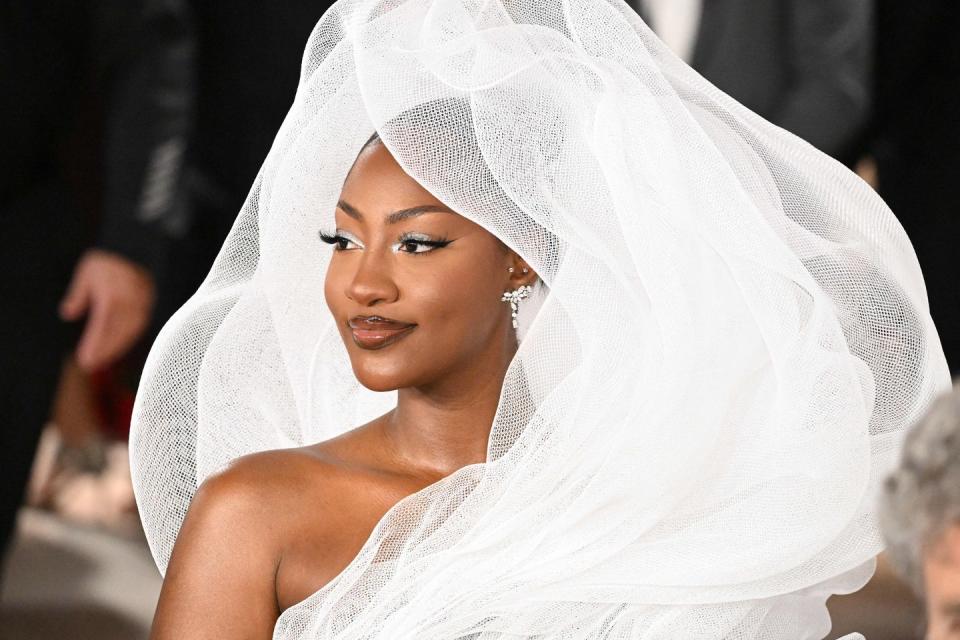
'Viola Davis and the lady director need to …shut up'
Arguably, this year’s biggest Oscars controversy happened before the ceremony even took place. Viola Davis missed out on a ‘Best Actress’ nomination for The Woman King, despite the film receiving an almost 100% approval rating and enjoying a 19 million dollar opening weekend.
Nominated instead was Andrea Riseborough for her performance in To Leslie, a picture which took just £22,000. Riseborough’s campaign, which used her connections to secure endorsements from influential Hollywood stars, was subsequently investigated by the Academy.
Of course, Academy selection is subjective and a more lucrative film does not necessarily equal a better performance. And while Viola Davis and Danielle Deadwyler’s omissions in the Best Actress category were widely criticised, it's not the first time major talent has missed out on a nomination. The problem here is the wolves baying for them to be cancelled if they expressed grief at their lack of inclusion.
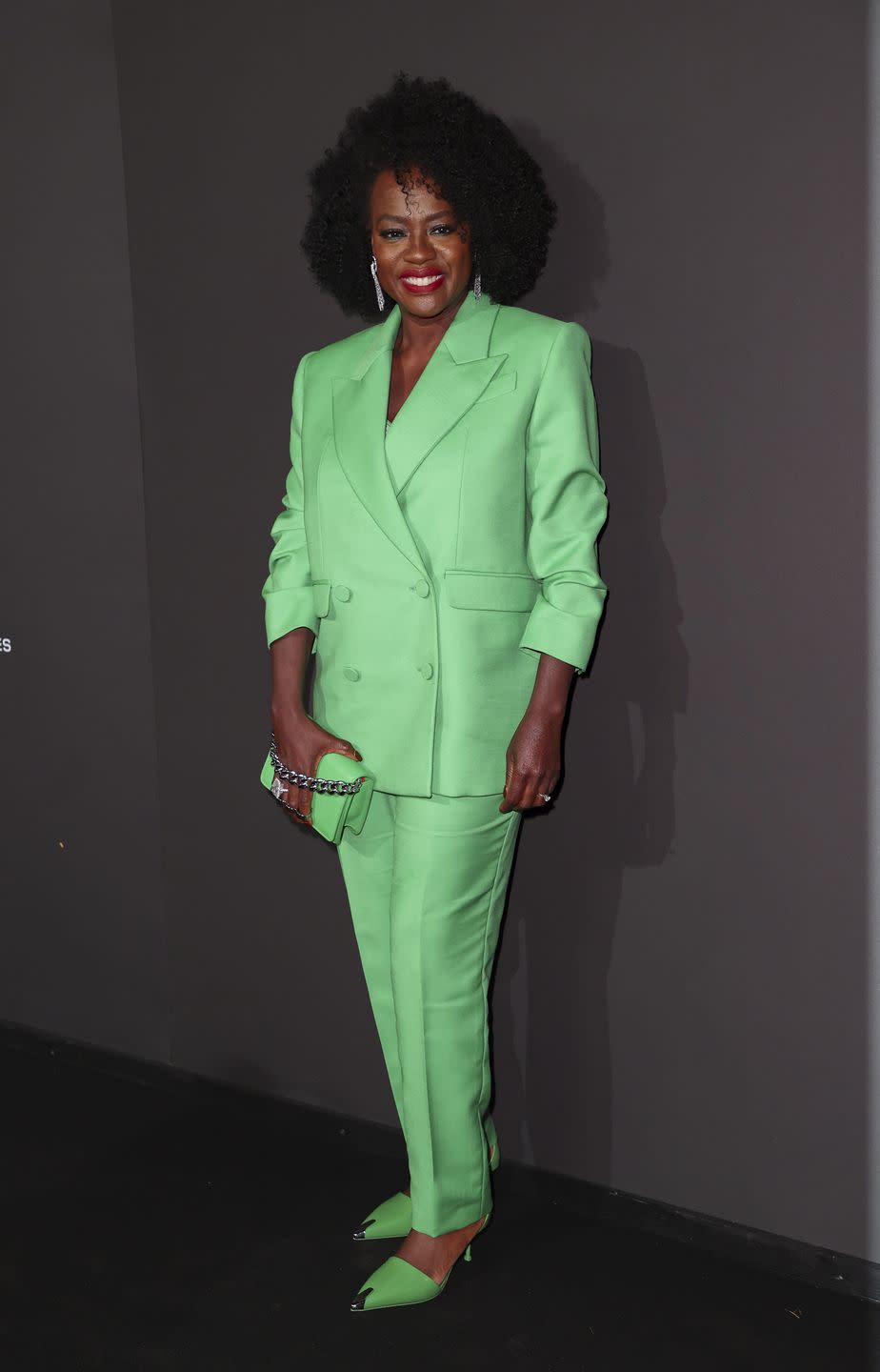
An anonymous Academy member and voter discussing the pushback, said: 'Viola Davis and the lady director [Gina Prince-Bythewood, the Black female director of The Woman King, who also didn't get any Oscars nominations] need to sit down, shut up, and relax. You didn't get a nomination — a lot of movies don't get nominations. Viola, you have one or two Oscars, you're doing fine.'
Viola Davis’ supposed feelings of entitlement towards an Oscar nomination clearly riled members of the Hollywood elite. Film critics and other journalists routinely declare certain films or actors 'snubbed,' in fact it's an important part of the Oscars buzz. What doesn’t happen often, is the blaming and targeting of the actor in question for the backlash around it.
The comments are symptomatic of a wider desire to cap the achievement of Black women once they've been thrown a bone. Davis already has an Oscar on her mantlepiece, shouldn't she be satisfied? The anonymous voter deemed it laughable that we might expect her to be in line for a second Oscar award, after the one she'd won for Best Supporting Actress in 2017.
The musings of this Academy member present a wider problem regarding the diversity of its make up. In 2022, 81% of voting Academy members identified as white, a statistic which clearly affects the choices they make.
If the Oscars are a barometer for public opinion, the prognosis for Black women looks bleak. As an institution, the Academy has been repeatedly criticised for ‘failing Black women’ and although steps have been taken, there is clearly work left to be done.
If the Oscars award ceremony still sets the tone and standards of the entertainment industry, benchmarks which are extrapolated into other areas of public life due to Hollywood’s hyper visibility, then how Black women are treated by the Academy matters.
Addressing the Oscars' problem with Black women has the potential to drive change in the real world, only time will tell if they’ll rise to the challenge.
You Might Also Like


